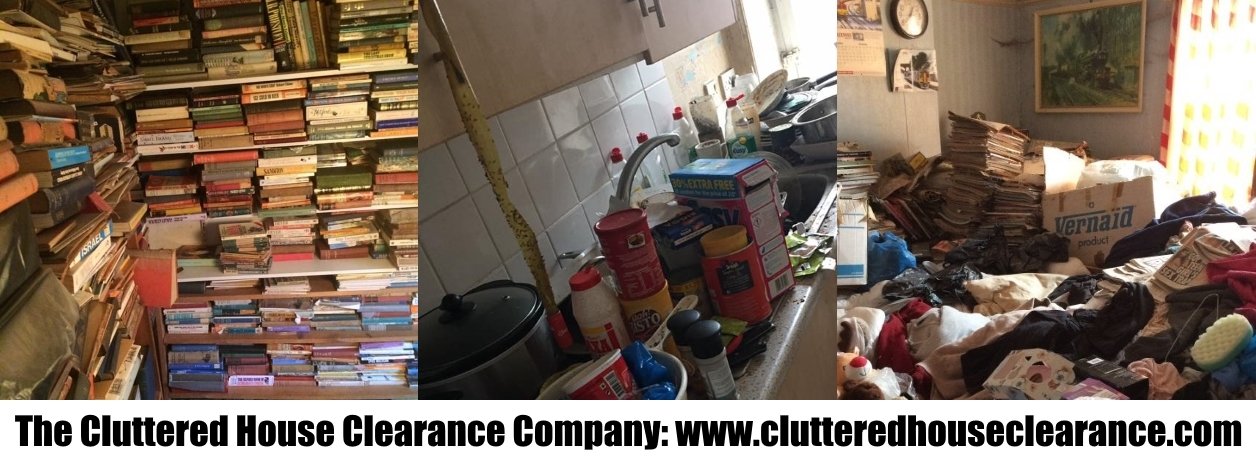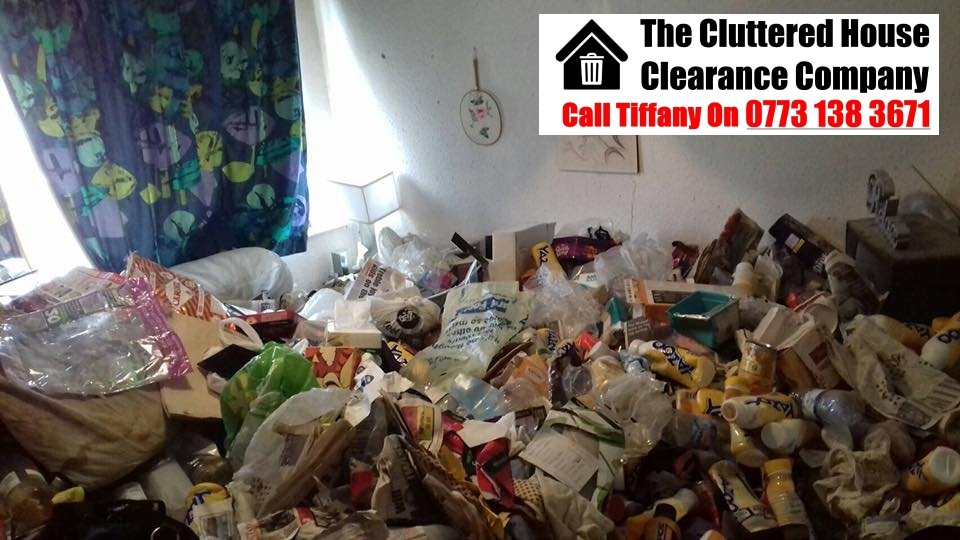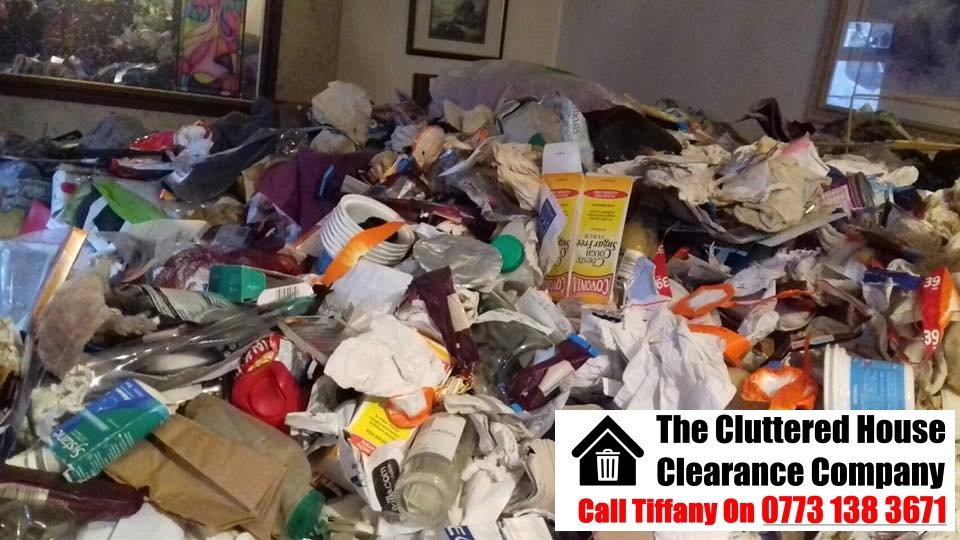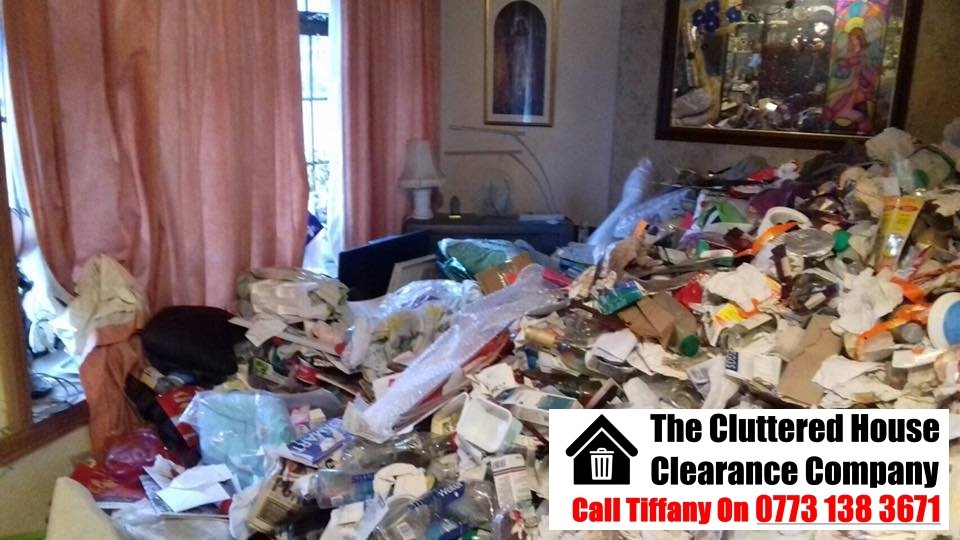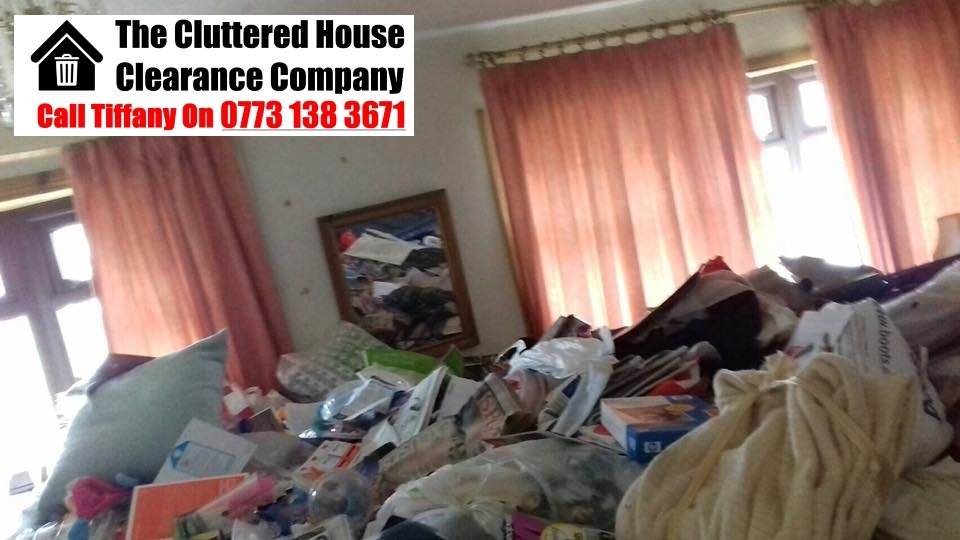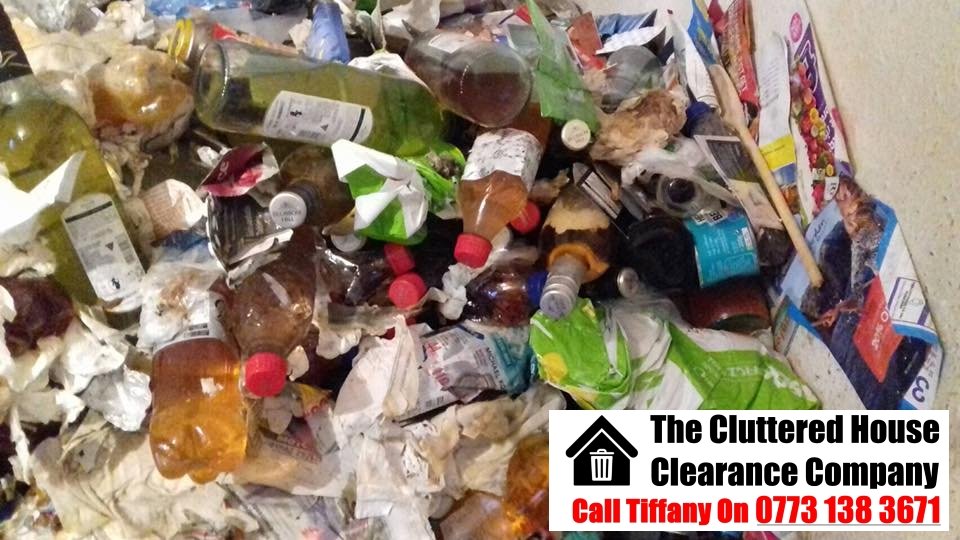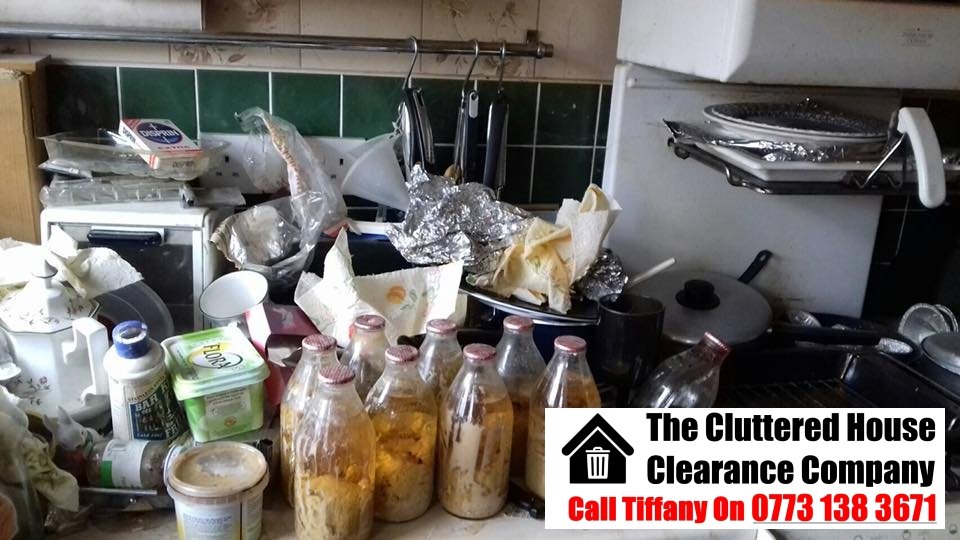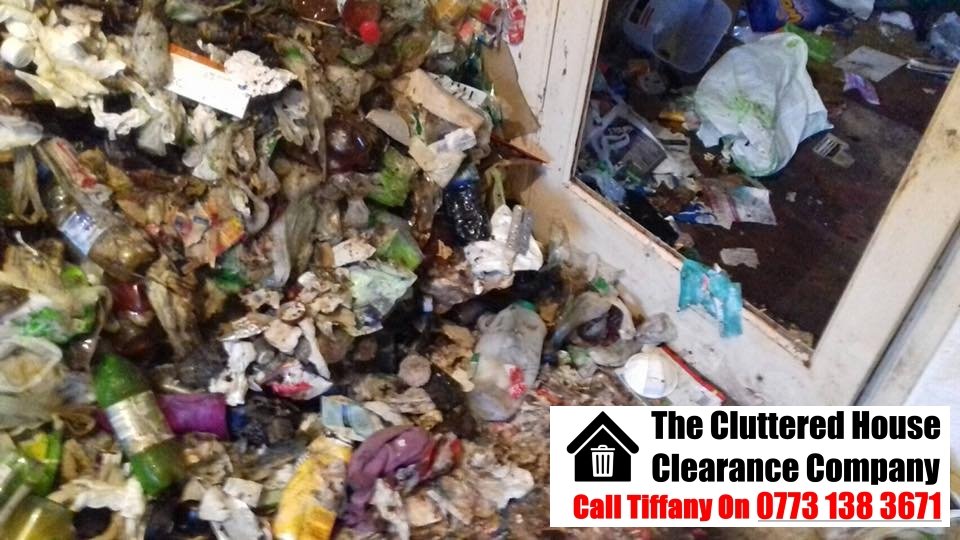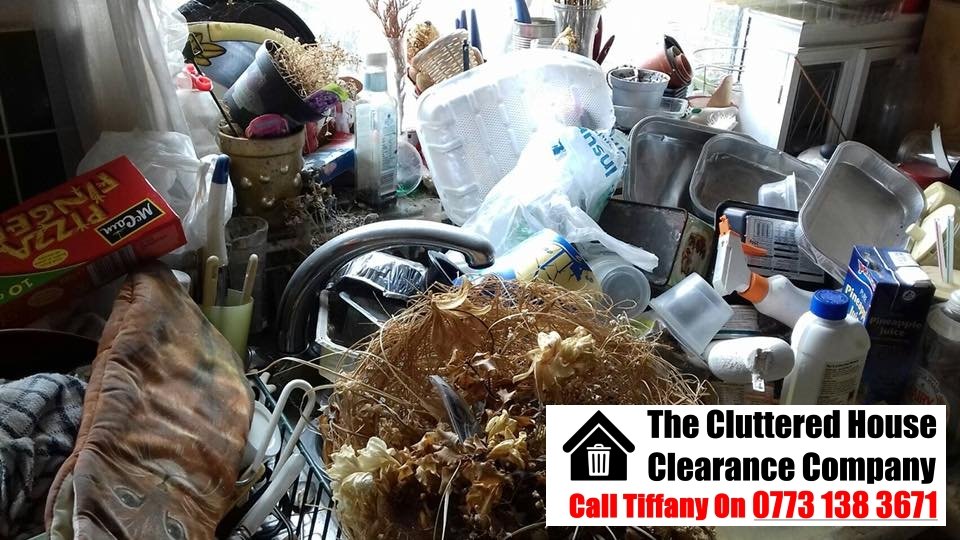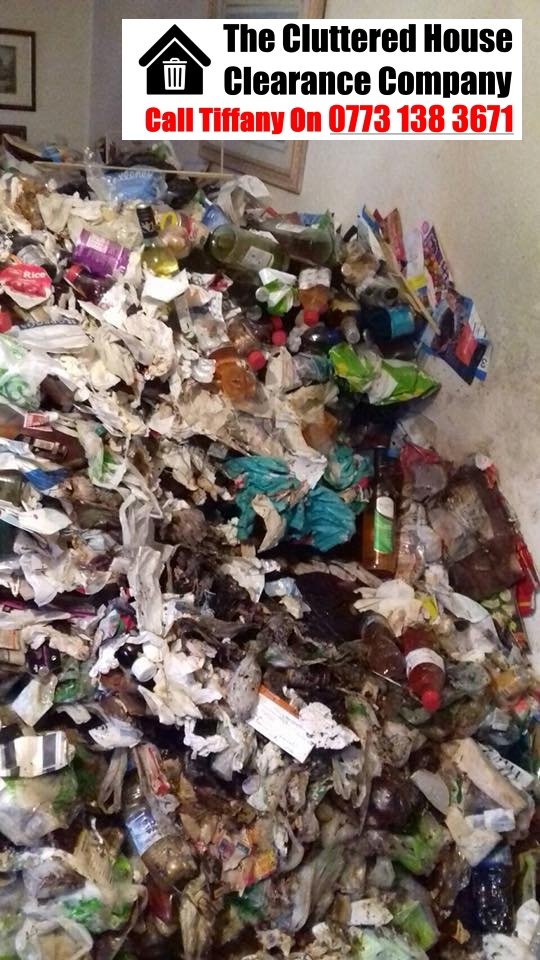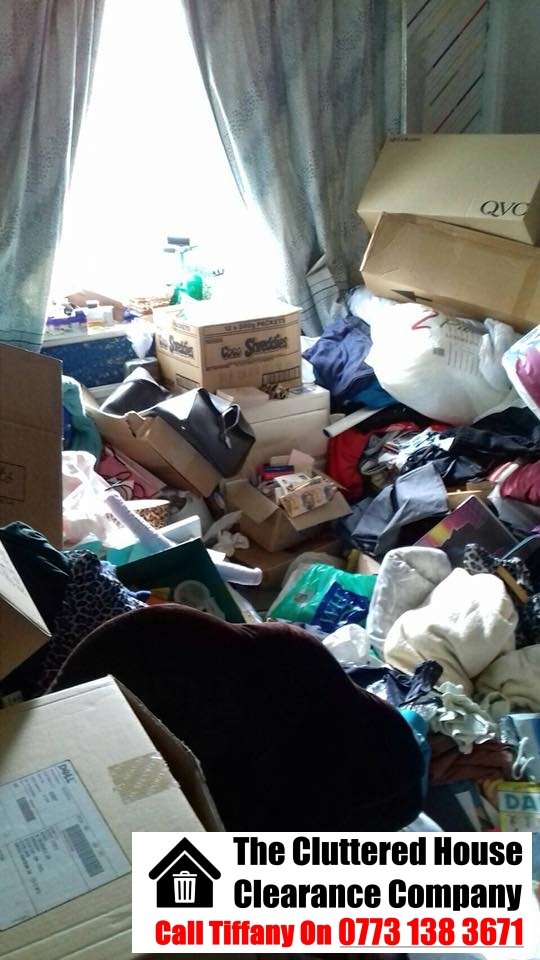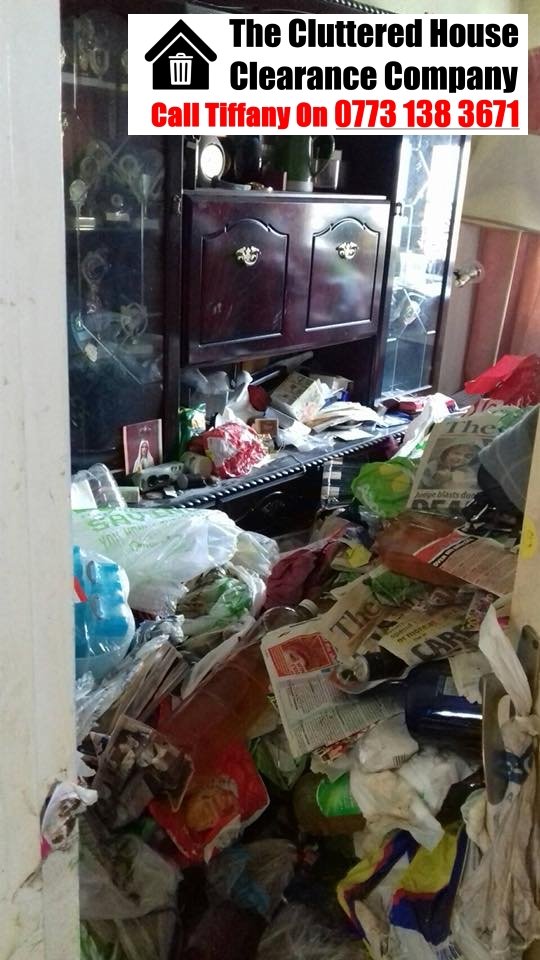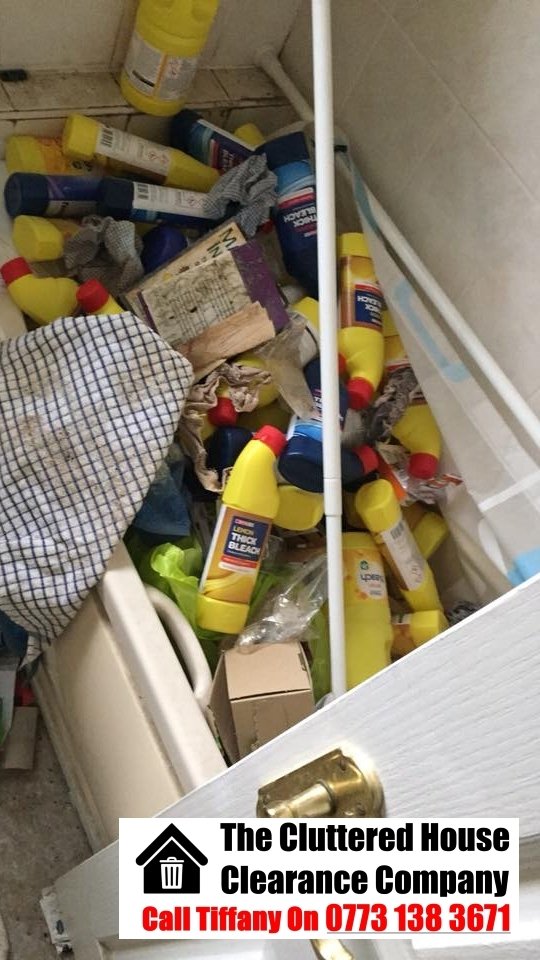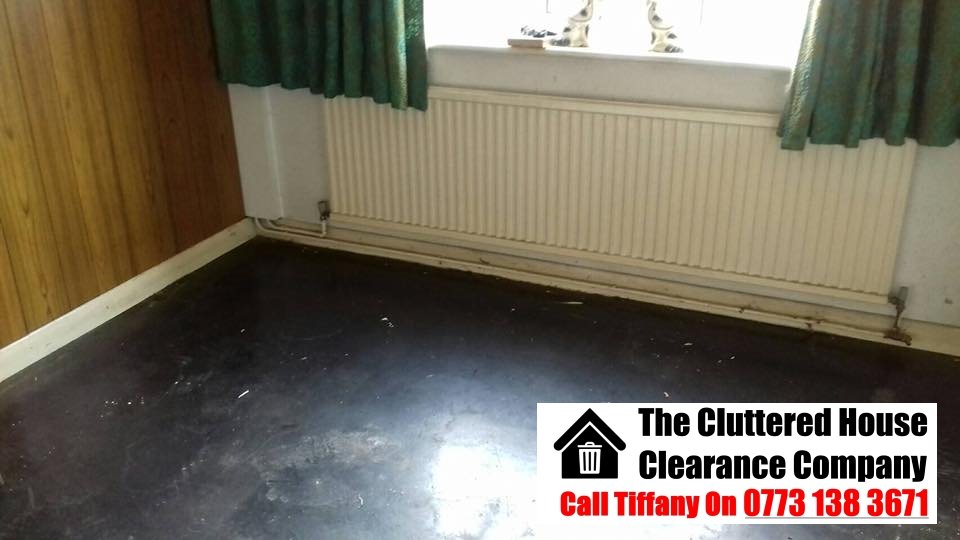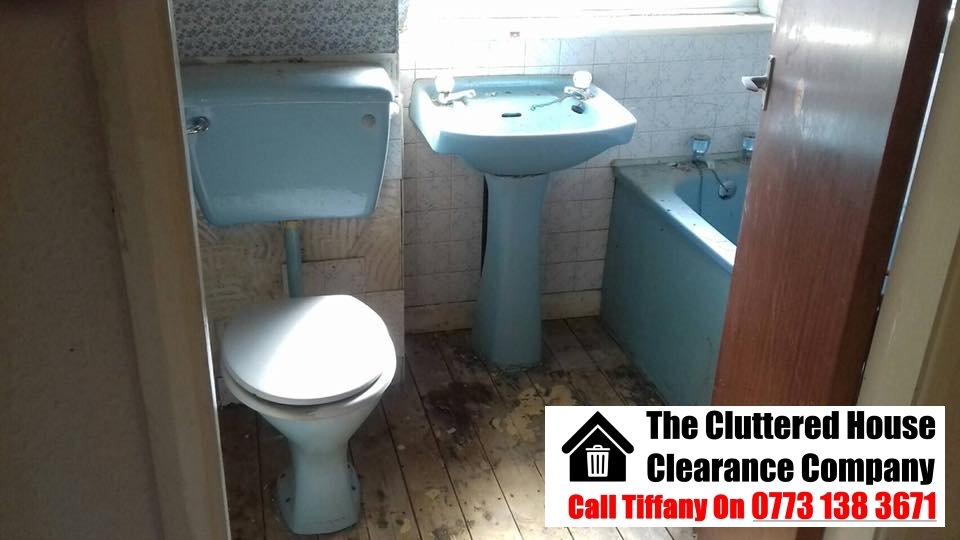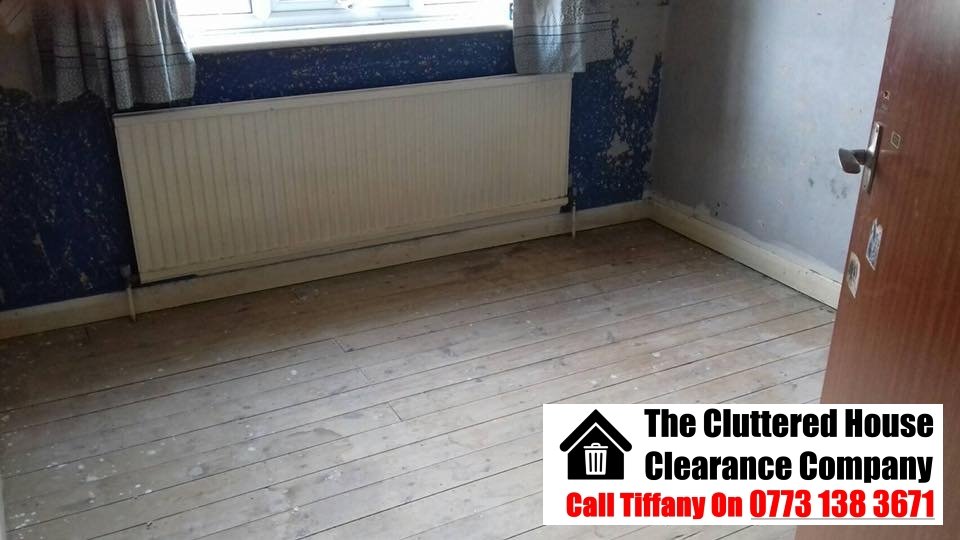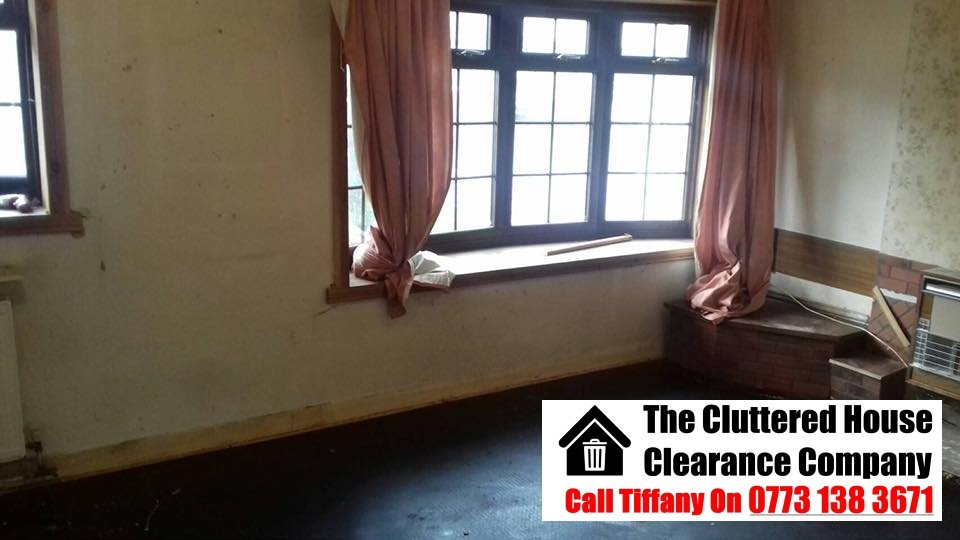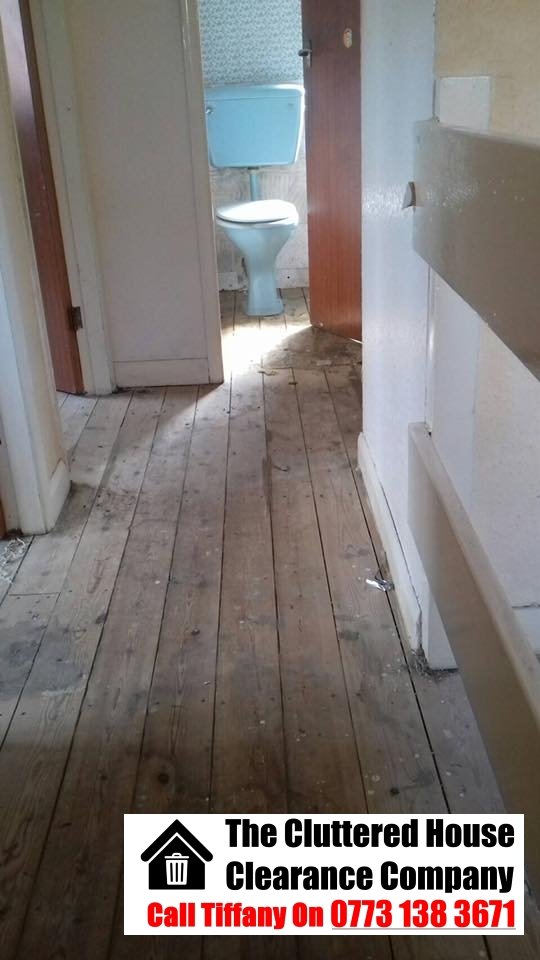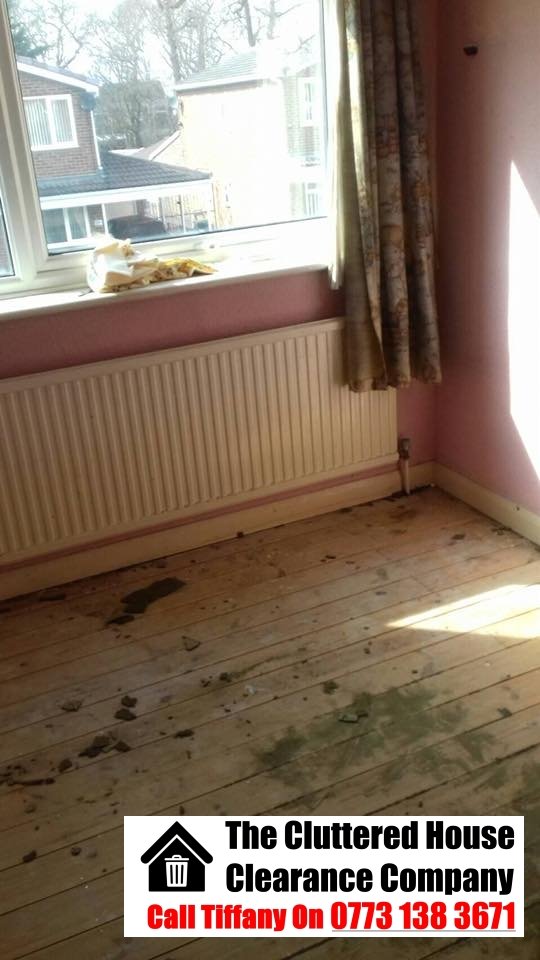Sometimes, the act of clearing a hoarders house can be hugely intimidating. If a house has previously been occupied by somebody with a hoarding problem, professional services are recommended. This is where The Cluttered House Clearance Company comes in.
- Hoarding House Clearance Specialists
- Reasons To Use Our Hoarding House Clearance Service
- Our Hoarding House Clearance Specialists Explore The Hoarding Mindest & OCD
- Our Hoarded House Clearance Specialists Explain How To Identify A Hoarder
- Our Hoarded House Clearance Specialists Describe The Home Of A Hoarder
- Our Hoarded House Clearance Specialists Look At The 5 Levels Of Hoarding
- Our Hoarded House Clearance Specialists Ask: Why Do People Hoard?
- Our Hoarded House Clearance Specialists Look At The Risks of Hoarding
- A Cautionary Hoarders Tale
- Getting Help for Hoarding
- Hoarded House Clearance Before & After Pics
- Hoarded House Clearance Customers Comments
Hoarding House Clearance Specialists
We’re a family run business with years of experience in clearing even the most extreme hoarding homes. You can trust us to leave the property spotless, and remove all traces of the hoarding that previously defined the space. This leaves you to re-assess the home, and make sound decisions based on the potential that you know is there.
Our team at The Cluttered House Clearance Company are no strangers to hoarders. That’s why we started this business in the first place. You can be assured that we have seen it all, and there will be absolutely no judgment from our hard working, professional cluttered house clearance team. Whether it’s your own home or that of a loved one, there’s no need to be embarrassed. We’re here to help, and ensure that your property is restored to its former glory.
We work quickly, discreetly, and professionally. You can play as large or as small a part in the process as you’d like. If you want to stick around and watch us work, then great – but if you’d rather leave us to it, that’s fine too! All we need from you is to know what you consider to be clutter, and what is important. We will divide everything into three categories – dispose, salvage, or keep.
From there, leave everything in our hands. You can be assured that we are as ethical as we are professional. We are registered members of AFTA, the Anti Fly-Tipping Association, and we only use registered, licensed recycling centres to ensure that any disposal of possessions is completed appropriately.
Hoarded House Clearance Specialists – Top
Reasons To Use Our Hoarding House Clearance Service
Our experienced, professional hoarded house clearance team know exactly what will be required. We’ll send the right number of people, ensuring that the job is completed quickly and efficiently.
- We value your privacy. We will not use marked vans while undertaking our work, and we will never reveal any identifiable details of any customer or property.
- We enjoy accreditation from all relevant environmental bodies, and have an good relationships with many local councils and registered recycling centres.
- We have located countless valuable items for our customers while performing our services. If you are sitting on a goldmine without even realising it, we’ll help you discover those lost items and even items you never even knew existed! (See: Cluttered House Clearance Finds: Scroll To Bottom Of Page)
- Our quotes do not change. Once we give you a price, you have our word that you will not be expected to pay a penny more!
- Please take a moment to read our REAL cluttered house clearance customer testimonials!
There is also no limit to what we can clear! (See Our : Cluttered & Hoarded House Clearance Gallery) Whether the clutter is inside the house or out, we’re willing to help. That even includes disassembling and disposing of a garden shed, if necessary. We’ll simply get to work, do our job, and be out of your hair. You’ll have a clear and clutter-free space before you know it.
If you’re ready to start planning your de-cluttering journey, get in touch now. The Cluttered House Clearance Company are only ever a phone call away – just give Tiffany a call on 0773 138 3671, or drop us an email using the address clutteredclearances@yahoo.com. We’re waiting to hear from you!
Hoarded House Clearance Specialists – Top
Our Hoarding House Clearance Specialists Explore The Hoarding Mindest & OCD
Do you have a friend or family member with an unhealthy desire to obtain possessions – and a determination not to part with any of them? If so, you may know a hoarder.
Hoarding is actually more common than you may realise. The support group Help for Hoarders claim that around 3 million hoarders reside in the UK alone. As a result, compulsive hoarding is now recognised in the Diagnostic and Statistical Manual of Mental Disorders (MSD) – the bible of mental anguish and disorders for psychiatric professionals.
Deemed an offshoot of the more familiar Obsessive Compulsive Disorder (aka OCD), hoarding involves a person acquiring ever-increasing levels of personal possessions, regardless of whether they can be safely stored. Around 25-40% of people with OCD are estimated to also be hoarders.
Where a hoarder differs from a collector, however, is in what they acquire – and how. Everybody has their foibles, and likes to compile sizable amounts of particular items. Keen readers, for example, will be familiar with the Japanese term, “tsundoku” – the habit of purchasing more books than anybody will have time to read in a single lifetime.
Some of us will eventually reach a point of no return, however. When those books can no longer fit safely into our shelves, a job lot will make their way to the local charity shop. This is not the case with a hoarder. Known as bibliophiles, a book hoarder will keep adding books, magazines and newspapers to a pile until this tower of printed products compromises their very safety.
Naturally, this will take its toll on a hoarder – both physically and emotionally. Even if we are to leave aside the risk of these piles of possessions, can you imagine every square inch of your home being dominated by useless objects? Accompanied by the anguish of feeling they are unable to throw anything away, or even recycle it?
Thankfully, help is at hand. As hoarding is becoming increasingly recognised as an issue for so many, the healthcare profession is taking it seriously. An increasing number of counsellors are now available to aid and assist hoarders in managing their compulsions.
Hoarded House Clearance Specialists – Top
Our Hoarded House Clearance Specialists Explain How to Identify a Hoarder
Look out for the following characteristics, which tend to define a hoarder:
- Constantly purchasing new items, even if they’re useless or broken.
- Growing emotionally attached to these items, seemingly for no good reason.
- Becoming upset at the idea of recycling, selling or throwing anything away.
- Accepting limitations to lifestyle due to possessions taking up space.
- Living in squalor.
- Becoming increasingly reluctant to leave the house, and declining to interact with others due to a sense of shame.
- Showing signs of physical and mental illness.
Some people start to display hoarding tendencies in their teens, when they refuse to be parted from childhood possessions. The behaviour is more common in middle age, however.
Hoarded House Clearance Specialists – Top
Our Hoarded House Clearance Specialists Describe The Home of a Hoarder
Sometimes, hoarders can be difficult to spot initially. It’s not as though they hang a sign around their necks, after all! Some people are just a little behind on their cleaning.
Let’s imagine an extreme case of hoarding. You would open the door to a home, and find the hall filled with useless items. Newspapers are common, but there may also be electrical appliances. The important thing is that these items are stacked – floor to ceiling. Move into the kitchen, and you’ll find more items packed into every square inch of the room. Plates of rotting food are also likely to prevalent.
The smell of this kitchen is too much for you, so you open the door to the dining room. That’s the plan, anyway. In reality, the door just will not open fully. You peer through the space that you’ve made, and find that the room is literally filled with chairs, books, clothing and who knows what else. To add to the experience, there’s also animal faeces everywhere. Clearly, rodents and feral cats have been accessing the territory.
You have seen enough by now – there’s no need to go upstairs, as that will be more of the same. That’s probably for the best, as you’re also now noticing the mould and mildew everywhere, along with the smell of ammonia. Animals are emptying their bladders in the house too, it seems. Perhaps that’s why the wood is starting to rot, and the walls disintegrate. It’s OK, though – the hoarder has created a labyrinth of walls and tunnels using old newspaper! What could possible go wrong? Think back to the sad fate of Langley Collyer to answer that question.
The reality is, however, a hoarder doesn’t see things that way. They consider these newspapers to be a path – it’s the most natural thing in the world to them. This is why, when things reach this stage, professional assistance from people experienced with hoarding will be required to clear out a house.
Hoarded House Clearance Specialists – Top
Our Hoarded House Clearance Specialists Look At The 5 Levels Of Hoarding
If you do call in professional help to clear a hoarders house, be aware that there are five levels of hoarding. A professional will assess the house, and assign it a status based on the following.
Level 1 Hoarding
- The house will be accessible, and can be walked around safely. The home will be cluttered, but not necessarily dangerously or excessively.
- There will not be any unpleasant odours, and the place will seem generally hygienic and sanitary – with the possible exception of a potential insect or rodent population.
Level 2 Hoarding
- The rooms in the homes of a Level 2 hoarder will be in dire need of a clean. They will smell of dust, grime and dirt, and there will likely be a large amount of unwashed laundry. At least two rooms will also likely be inaccessible due to excessive clutter.
- Animal infestation is likely, and if the hoarder has a pet, their elimination will not be cleaned up. Basic essentials, such ventilation or heating, are also likely to have been broken for at least six months.
Level 3 Hoarding
- You will be able to recognise a Level 3 hoarder’s home from outside, as the damage will start to become structural.
- A Level 3 hoarder will often start to acquire numerous pets. Expect at least three, none of which will be groomed or toilet trained.
- There will be very obvious dirt and grime throughout the home, and the smell will be overpowering.
Level 4 Hoarding
- By the time a hoarder reaches Level 4, their home will be uninhabitable to anybody else. None of the rooms will be fit for purpose any longer, instead simply acting as vessels for clutter.
- Mould and mildew will be everywhere, creating a terrible smell. This will be complemented by the presence of countless animals – both pets and wild.
- Rotting food will be everywhere too, and there will be no ability to cook or find a clean plate to eat from.
Level 5 Hoarding
- The home of a Level 5 hoarder requires urgent professional intervention. The house will be literally falling apart through structural damage, and there will be no access to electricity or plumbing.
- Bedrooms and kitchens will be inaccessible due to the clutter within, and essential appliances such as ovens will be used to store yet more objects.
- There will be evidence of infestation of rodents and animals at every turn, and these scents will mingle with those of human faecal matter and rotten food.
Hoarded House Clearance Specialists – Top
Our Hoarded House Clearance Specialists Ask: Why Do People Hoard?
That is ultimately a question for a psychiatric professional. Every hoarder will potentially have a different reason for their compulsion to retain. However, a common theory is that it’s simply caveperson instinct kicking in.
Our ancestors didn’t have access to supermarkets or takeaway restaurants. As a result, they always made sure they had access to food and water in case supplies ran dry. The same instinct exists in all animals. Squirrels stockpile nuts to see them through the winter, and dogs bury their favourite bones and toys in the back garden. Some cats even collect the corpses of the mice and birds that they hunt.
Make no mistake; we’re all hoarders to an extent. How many times have you promised yourself that you’d dedicate a day or two to clearing the clutter in your home? Even ensuring that our kitchen cupboards and freezers are full is a form of hoarding. We don’t have to head out with a spear to hunt our own meals like our ancestors, but we still hold the same fears of food supplies becoming exhausted.
That’s not hoarding, though. Not according to the definition that we’re using. Being prepared becomes hoarding when we cannot tell the difference between something pivotal to our survival, and clutter that just takes up space – and potentially leaves us vulnerable to harm.
Take a moment to look around your home. Do you have a spare room filled with books that you haven’t read in years, and never plan to again? Is your wardrobe full to bursting with clothing that hasn’t fit you since the 1990s? Is your mantelpiece groaning under the weight of ornaments, the sentimental importance of which you’ve long forgotten? If so. that’s easily resolved with a spring clean and de-cluttering.
How did you react to that idea, though? Are you excited by the prospect of finally ridding your house of some of the needless items that are just taking up space? Then you’re not a hoarder. A hoarder would rather buy a second wardrobe than empty anything from their existing one. A hoarder will keep piling those books into that room, one on top of the other, until it’s impossible to open the door. A hoarder will add more and more ornaments to that mantelpiece, regardless of whether they match or it can sustain their weight.
It’s important that some effort is made to understand hoarders. On the surface, they simply look like lazy individuals that can’t be bothered to clean their house. This oversimplification is far from true. Some of the explanations of hoarding over the years have included…
Abnormal Brain Activity
The UC San Diego School of Medicine conducted an interesting study back in 2008. The University’s by Department of Psychiatry invited numerous hoarders to undergo a scan, so their brainwaves could be examined.
Abnormal brain activity was discovered in all of these hoarders. The problem was located in the ‘bilateral anterior ventromedial prefrontal cortex’ (BAVPC) – which is the part of the human brain used for decision-making.
The hoarders that underwent the scan were found to have their BAVPC impaired. This may have been due to birth defects, or it could have stemmed from sickness or injury. Stroke patients, for example, are often found to hoard following their recovery.
Whatever the reason for the brain impairment, it is firmly believed that issues with the BAVPC are linked to hoarding behaviours.
Inherited Behaviour
Monkey see, monkey do? Many hoarders claim that they witnessed a relative who also displayed such a disorder. If exposed to this as a child, it can create a strong association.
Childhood Psychology
Despite being considered the father of psychoanalysis, Sigmund Freud’s theories do not appeal to everybody. In fact, some consider his teachings to be out-dated and disproven by modern psychiatry.
One theory is yet to be completely disproven, however; that hoarding is linked to childhood toilet training. Freud believed that a negative experience in this stage of development would impact the individual’s future.
According to Freud, strict toilet training created an anal-retentive personality. This meant that if a child was punished for accidents during their training. As a result, these children become adults that are obsessive about retaining control over everything in their lives.
This includes personal possessions, with an anal-retentive personality growing distressed at the idea of throwing anything away. For those who subscribe to Freud’s theories, this is because these possessions represent the bladder control that they ‘lost’ as children.
Emotional Trauma
Finally, never underestimate the impact that emotional trauma can have on somebody. Experiencing an unexpected bereavement, for example. Abandonment issues can create a similar mentality
These experiences can leave somebody determined to hold onto possessions, through fear that they will lose everything. Material possessions can be controlled, in a way that human lives cannot. This can create a sense of comfort for a hoarder.
Hoarded House Clearance Specialists – Top
Our Hoarded House Clearance Specialists Look At The Risks of Hoarding
Hoarding behaviours can be hugely detrimental to health of the hoarder, and their loved ones. It can create strained relationships with neighbours, too.
Just some of the potential results of hoarding include:
- Eviction from property.
- Structural damage to a home – and those of neighbouring houses.
- Rodent infestations, leading to disease.
- Fire hazards caused by excessive flammable materials.
This makes it so important that hoarders seek help. Counselling services are available – and professional house clearers can deal with the clutter in the home.
Hoarded House Clearance Specialists – Top
A Cautionary Hoarders Tale
Arguably the most infamous hoarders of all time where Homer and Langley Collyer. Also known simply as The Collyer Brothers, this duo lived in New York early in the 20th Century. They collected countless items, including books, newspapers, cameras, guns, musical instruments, kerosene stoves, and general bric-a-brac. The brothers even lived with 8 cats!
Driven by an uncontrollable urge to acquire and hoard, these brothers eventually filled their home in Harlem with around 130 tonnes worth of objects. Sadly, medical journals were clearly not among the books they stored. Both brothers were found dead in their home in 1947.
Now, it may be tempting to write off the Collyer brothers as a pair of eccentric cranks. That wouldn’t happen to anybody you know, right? There was clearly something deeply wrong with Homer and Langley. Being a little untidy is no big deal. You’ll get around to having a clear out soon, you’re just busy.
Well, here’s the thing. Both Collyer brothers were intelligent, professional young men. They had successful careers in law and music. They were just unfortunate enough to develop a reputation thanks to their desire for collecting. This meant that local people started to whisper. They claimed that these two men were sitting on a huge fortune, in the shape of countless rare and valuable items. They inherited the house from their deceased parents, and never emptied it. What wonders were being kept in their home?
As rumours are prone to do, these stories escalated into legend. Desperate New Yorkers, still struggling financially after the Great Depression, would attempt to break into their home to steal some of this supposed treasure. Local teenagers would throw rocks at their window, trying to catch a glimpse at the would-be millionaires. And as you can imagine, the Collyer brothers became very fearful and reclusive.
Things soon escalated. Homer and Langley Collyer began using their hoarded belongings to create impenetrable booby traps while they barricaded themselves indoors. Becoming increasingly reclusive, the brothers both lost their jobs. Unable to earn money, they started to live in squalor. Access to water, gas and electricity were cut off, and the brothers began living like vagabonds. They would eat from dustbins and wash in the fountain of the local park.
Further tragedy struck when Homer Collyer became handicapped. Already plagued by rheumatism, Homer lost his eyesight. The brothers opened their home, in order to put a stop to the rumour and innuendo that was plaguing their lives. A New York Herald journalist asked Langley to explain why the home was packed with newspapers, stacked floor to ceiling. The response was that Langley was saving these newspapers for his brother, ensuring that he could catch up with the news when he regained his sight.
This would never happen. The police responded to complaints from the Collyer’s neighbours one fateful day in 1947. A terrible smell was coming from the brothers’ apartment – which was attributed to the dead body of Homer Collyer, which lay on the floor. Langley was nowhere to be seen, which raised suspicion. Sadly, the truth was even more tragic.
Langley Collyer’s body was found a few weeks later, during a house clearance. Langley, it seemed, had been crushed to death by a pile of newspapers. The coroner ruled that, due to his rheumatism, Homer was unable to feed himself. Langley was attempting to negotiate the labyrinth of newspapers inside their family home. In the process, he fell victim to one of the traps that he had laid to deter intruders from the home. Unable to feed himself, Homer starved to death, mere feet from his brother’s corpse.
The Collyer brothers passed into history. The house itself was dilapidated and on the brink of ruin, which is often the case with the homes of hoarders. The legacy of Homer and Langley Collyer lives on, however. Anybody that visits Harlem can take a seat in Collyer’s Park. If you do so, please do remember to take any rubbish away with you. It may not be what the brothers would have wanted, but it’s certainly what they needed.
Hoarded House Clearance Specialists – Top
Getting Help for Hoarding
Hoarding is not a problem that can be resolved alone. By its very nature, this compulsion requires professional intervention. It can be hard for a hoarder to swallow their pride and ask for help, but it’s pivotal that they do so.
Calling in a professional house clearer will help – but the root cause of the hoarding also needs to be addressed. Otherwise, what’s to stop the individual from rushing to the nearest jumble sale or skip and starting a collection all over again?
As we have discussed, the reasons for hoarding vary from person to person. By undertaking counselling with a psychiatric professional, the hoarder will learn their own triggers. From there, they can work on putting a stop to the behaviour. We all have quirks and foibles, and most often we have no idea why. Counselling can help us uncover the thinking behind our behaviour.
A hoarder should always approach their GP in the first instance. There are two reasons for this. Firstly, the hoarder should undergo a physical examination. If their habit has reaches Level 3 or higher, they will have been living in hazardous conditions to their health. A doctor will be able to assess if any damage has been done.
Once the physical side is taken care of, a GP can help with sourcing and referring counselling. Some people may prefer a private therapist, and will look for their own. This is absolutely fine. What is important is that a hoarder seeks – and accepts – the help that is out there. It’s only after doing this that a hoarder can start putting their life back together again.
Remember, too – if you are dealing with a loved one that hoards, be kind and patient. Hoarders are not lazy, messy or wilfully obstructive. They are living with a psychological illness, which may in turn be linked to mental illness. Professional help will uncover this, and help your hoarding loved one to come to terms with their issues.
Hoarded House Clearance Specialists – Top
This articles was brought to you by the cluttered and hoarding house clearance specialsits at The Cluttered House Clearance Company
Hoarded House Clearance Before And After Pics
Clearing A Hoarder’s House UK – Before & After Page 2
Hoarded House Clearance Gallery (After Pics)
Clearing A Hoarder’s House UK – Before & After Page 2
Hoarded House Clearance Specialists – Top
Hoarded House Clearance Customers Comments

I just want to show my gratitude to your cluttered house clearance specialists for clearing my mums extremely cluttered three bedroom flat. I was unable to be present for the clearance due to work commitments, your team had no troubles with collecting the keys from the estate agents and returning them when the flat was cleared. Your cluttered house clearance specialists have carried out a highly professional clearance and have worked extremely hard throughout the two days that it took. (Continue reading and more)
This articles was brought to you by the cluttered and hoarding house clearance specialsits at The Cluttered House Clearance Company

